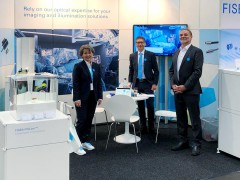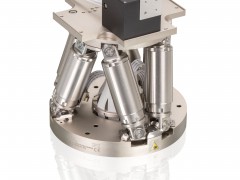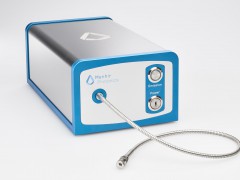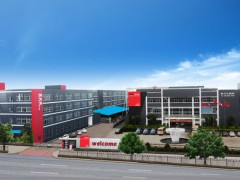
Lumentum reports 'record' 2018 revenue of $1.25 billion
source:Optics.org
release:Nick
keywords: Lumentum pump lasers
Time:2018-08-10
In the latest quarter’s trading (to June 30) Lumentumachieved a net profit of $25.7m, up from a loss of $55.2m, in the same quarter of 2017. Revenue rose to $301.1 million from $222.7 million. The company’s latest financial statement also highlighted improved sales of TrueFlex ROADMs, as well as commercial and industrial pump lasers.
Following the August 7th announcement, shares of Lumentum Holdings (“LITE”) immediately rose by just over 7% in premarket trading; the fourth-quarter earnings had exceeded forecast expectations. Net income for the fourth quarter of 2018 was $61.6m; that for Q3 2018 was $50.6m, while that of Q4, 2017 was $25.0m (all figures non-GAAP).
Considering the annual performance, net revenue for 2018 was $1,247.7m, compared with $1,001.6m for 2017. Net income for 2018 was $247.8m; while non-GAAP net income for 2017 was $122.4m.
Alan Lowe, President and CEO, commented, “Record revenues in TrueFlex ROADMs, commercial lasers, and industrial pump lasers drove strong fourth quarter results, capping off a record fiscal 2018 that saw 25% year over year growth and 19.7% operating margins.
”Our strategy of investing in differentiated products addressing multiple growing end-markets critically dependent on photonics drove our strong fiscal 2018 results and positions us well for the future."
Outlook
Looking ahead, the company said it expects to achieve the following performance for Q1, 2019: net Revenue to be in the range of $340m to $360m; an operating margin of 19% to 21%; and diluted earnings per share of $0.90 to $1.10 (all figures non-GAAP).
The Lumentum Holdings statement noted, “Our guidance does not include results from the March 2018 acquisition of Oclaro or shares issued in connection with the closing of our acquisition of Oclaro as we are unable to predict the timing of the closing.”
Analysts conference
During the associated conference, many analysts posed questions relating to the 3D sensing sector, as deployed in smart phone camera and focusing systems, a significant market sector for Lumentum’s products.
Lowe commented, “With respect to the 3D sector, what we’re focused on is making sure we don't give our customer any excuse to want to buy from anyone else and that's really exacerbated by the fact that we shipped tens of millions, if not over hundreds of millions of units with no failures. Those kind of statistics and field reliability data that we can point to really gives us a leadership position in market share. So we expect to continue to have a very strong share position not only on the existing products, but on next-generation products.”
Asked about trends in the datacom market sector – notably whether tight and reducing margins in this market are still worth pursuing – and a planned launch of a new “hyperscale” product later in 2018, Lowe said, “On the client side of the telecom networks, where Datacom transceivers play, we’ve a good product line and meet the needs of those customers.
”But in the hyperscale we haven't had anything that is really able to compete effectively – except when we first initially introduced a 100G transceivers when we were first to market. Later this year we will have product that will be able to address the hyperscale in a meaningful way, even with continued compression on ASP. So we are pretty pleased with where we are.”
He also gave some detail about his expectations for diode and fiber lasers: “We expect continued fiber laser strength going into the September quarter and therefore continue to have that capacity constrained situation on both industrial diode and fiber lasers. The part of the laser business that is declining is that which is pulled into the microelectronics space or what we call the micro materials processing side.
"That is impacted by the typical consumer-electronics cycle where manufacturers add capacity in late spring and in through the summer and then aren't adding new equipment in the late summer into the fall because they already need to that capacity to produce consumer electronics products. So we do expect that that micro materials processing portion of our lasers business to resume that kind of growth trajectory.”
- RoboSense is to Produce the First Chinese Multi-beam LiDAR
- China is to Accelerate the Development of Laser Hardening Application
- Han’s Laser Buys Canadian Fiber Specialist CorActive
- SPI Lasers continues it expansion in China, appointing a dedicated Sales Director
- Laser Coating Removal Robot for Aircraft
 FISBA exhibits Customized Solutions for Minimally Invasive Medical Endoscopic Devices at COMPAMED in
FISBA exhibits Customized Solutions for Minimally Invasive Medical Endoscopic Devices at COMPAMED in New Active Alignment System for the Coupling of Photonic Structures to Fiber Arrays
New Active Alignment System for the Coupling of Photonic Structures to Fiber Arrays A new industrial compression module by Amplitude
A new industrial compression module by Amplitude Menhir Photonics Introduces the MENHIR-1550 The Industry's First Turnkey Femtosecond Laser of
Menhir Photonics Introduces the MENHIR-1550 The Industry's First Turnkey Femtosecond Laser of Shenzhen DNE Laser introduced new generation D-FAST cutting machine (12000 W)
more>>
Shenzhen DNE Laser introduced new generation D-FAST cutting machine (12000 W)
more>>


